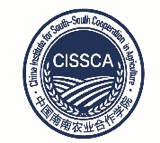International Labour Organization (ILO)
Description
About:
The only tripartite U.N. agency, since 1919 the ILO brings together governments, employers and workers of 187 member States , to set labour standards, develop policies and devise programmes promoting decent work for all women and men. Underlying the ILO’s work is the importance of cooperation between governments and employers’ and workers’ organizations in fostering social and economic progress.
The ILO aims to ensure that it serves the needs of working women and men by bringing together governments, employers and workers to set labour standards, develop policies and devise programmes. The very structure of the ILO, where workers and employers together have an equal voice with governments in its deliberations, shows social dialogue in action. It ensures that the views of the social partners are closely reflected in ILO labour standards, policies and programmes.
The ILO encourages this tripartism within its constituents - employers , workers and member States , by promoting a social dialogue between trade unions and employers in formulating, and where appropriate, implementing national policy on social, economic, and many other issues.
Main bodies
The ILO accomplishes its work through three main bodies which comprise governments’, employers’ and workers’ representatives:
- the International labour Conference sets the International labour standards and the broad policies of the ILO. It meets annually in Geneva. Often called an international parliament of labour, the Conference is also a forum for discussion of key social and labour questions.
- the Governing body is the executive council of the ILO. It meets three times a year in Geneva. It takes decisions on ILO policy and establishes the programme and the budget, which it then submits to the Conference for adoption.
- the International Labour Office is the permanent secretariat of the International Labour Organization. It is the focal point for International Labour Organization’s overall activities, which it prepares under the scrutiny of the Governing Body and under the leadership of the Director-General.
The work of the Governing Body and of the Office is aided by tripartite committees covering major industries. It is also supported by committees of experts on such matters as vocational training, management development, occupational safety and health, industrial relations, workers’ education, and special problems of women and young workers.
- Regional meetings of the ILO member States are held periodically to examine matters of special interest to the regions concerned.
Standards Supervisory System:
International labour standards are backed by a supervisory system that is unique at the international level and that helps to ensure that countries implement the conventions they ratify. The ILO regularly examines the application of standards in member states and points out areas where they could be better applied. If there are any problems in the application of standards, the ILO seeks to assist countries through social dialogue and technical assistance.
The ILO has developed various means of supervising the application of Conventions and Recommendations in law and practice following their adoption by the International Labour Conference and their ratification by States. There are two kinds of supervisory mechanism
Partnering for Development:
Since the early 1950s, the ILO has been providing technical cooperation to countries on all continents and at all stages of economic development. Projects are implemented through close cooperation between recipient countries, donors, and the ILO, which maintains a network of country offices worldwide.
Development cooperation builds bridges between the ILO’s standard-setting role and women and men everywhere. It is essential to give people decent work opportunities and an important means of assisting our constituents – workers, employers and governments – in making the Decent Work Agenda a reality. Simply put, development cooperation supports the technical, organizational and institutional capacities of ILO constituents for them to put in place meaningful and coherent social policy and ensure sustainable development.
With over 50 years of experience in development cooperation on all continents and at all stages of development, the ILO today has over 600 programmes and projects in more than 100 countries – with the support of 120 development partners.
Programme and budget:
The Programme and Budget of the Organization which sets out the strategic objectives and expected outcomes for the Organization’s work is approved every two years by the International Labour Conference.
Mission and Impact:
The International Labour Organization is devoted to promoting social justice and internationally recognized human and labour rights, pursuing its founding mission that social justice is essential to universal and lasting peace.
Only tripartite U.N. agency, the ILO brings together governments, employers and workers representatives of 187 member States , to set labour standards, develop policies and devise programmes promoting decent work for all women and men.
Today, the ILO’s Decent Work agenda helps advance the economic and working conditions that give all workers, employers and governments a stake in lasting peace, prosperity and progress.
SECTOR
Development Cooperation
Country
Switzerland
SDG
01 - No Poverty, 03 - Good Health and Well-being, 05 - Gender Equality, 08 - Decent Work and Economic Growth, 10 - Reduced Inequalities
Organization Type
Multilateral Organization
Similar Organizations

.png)

